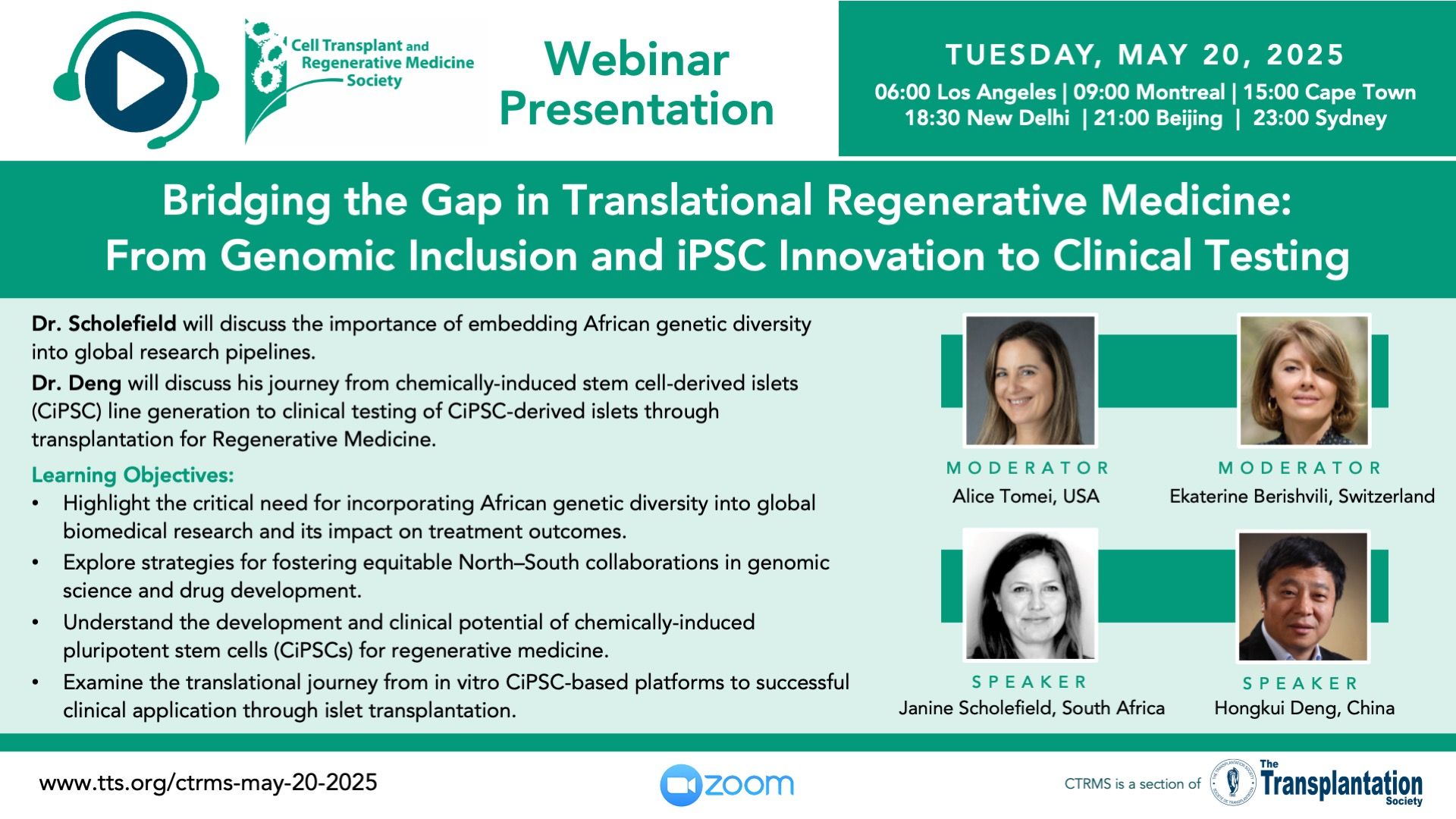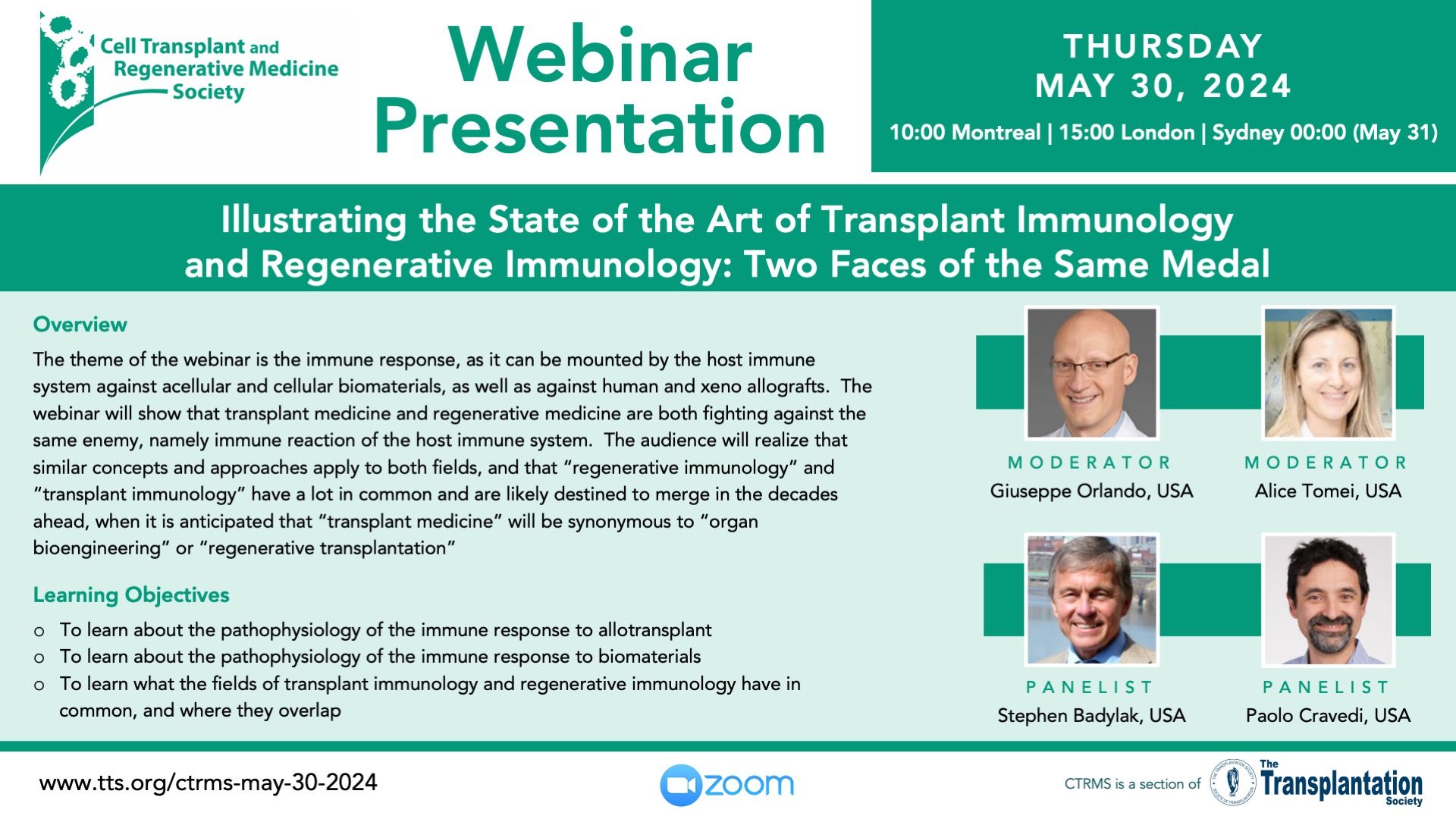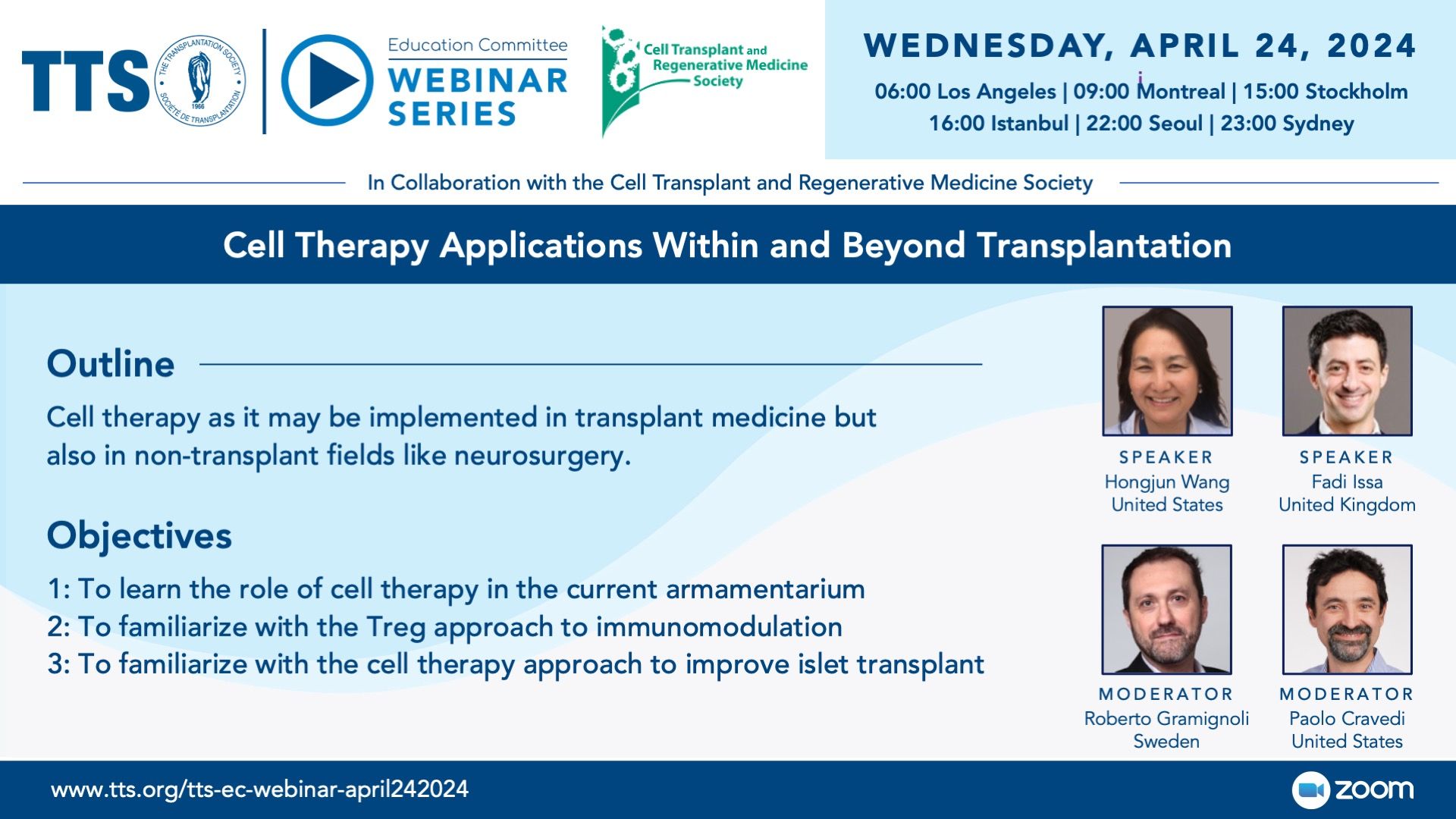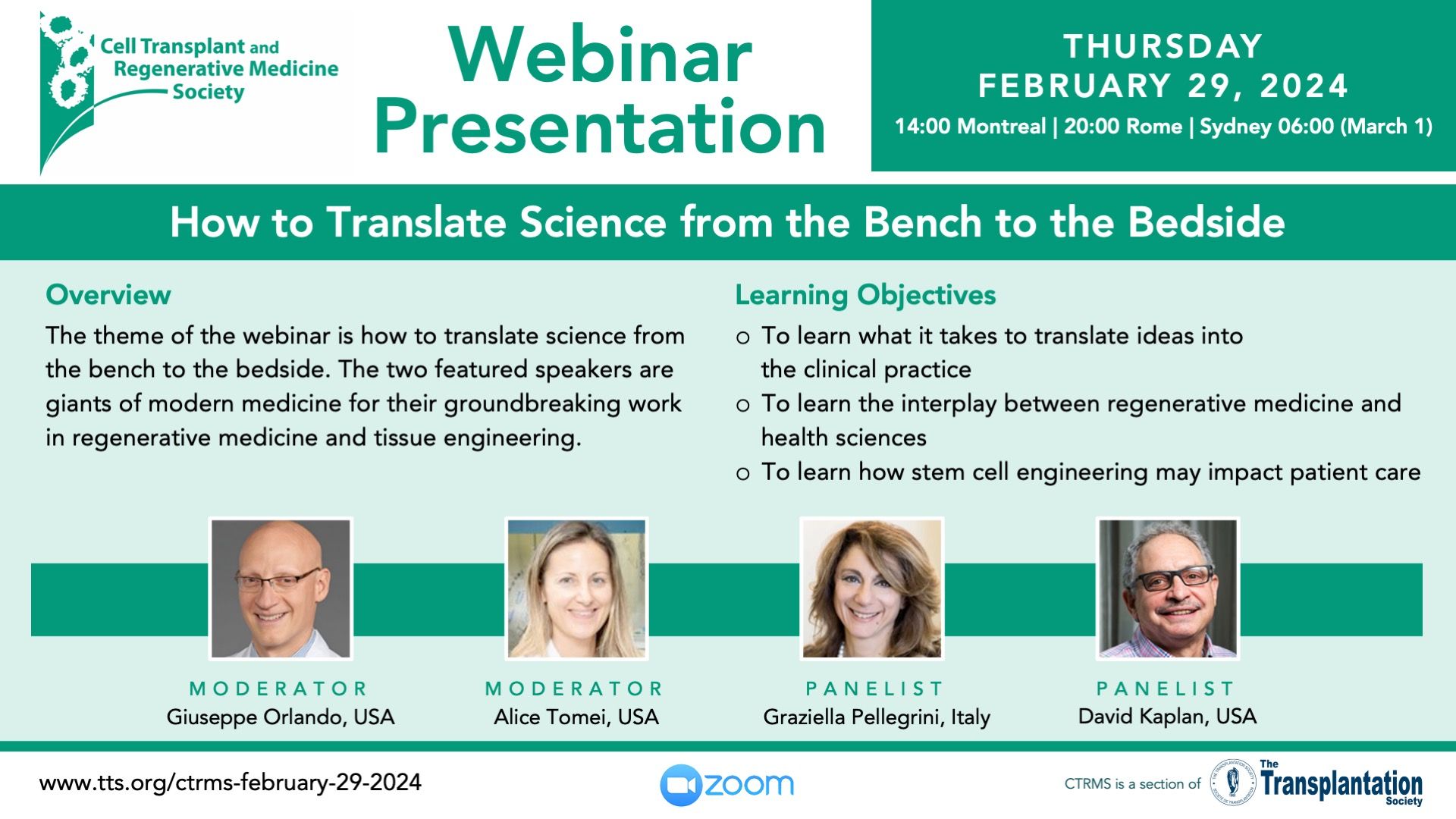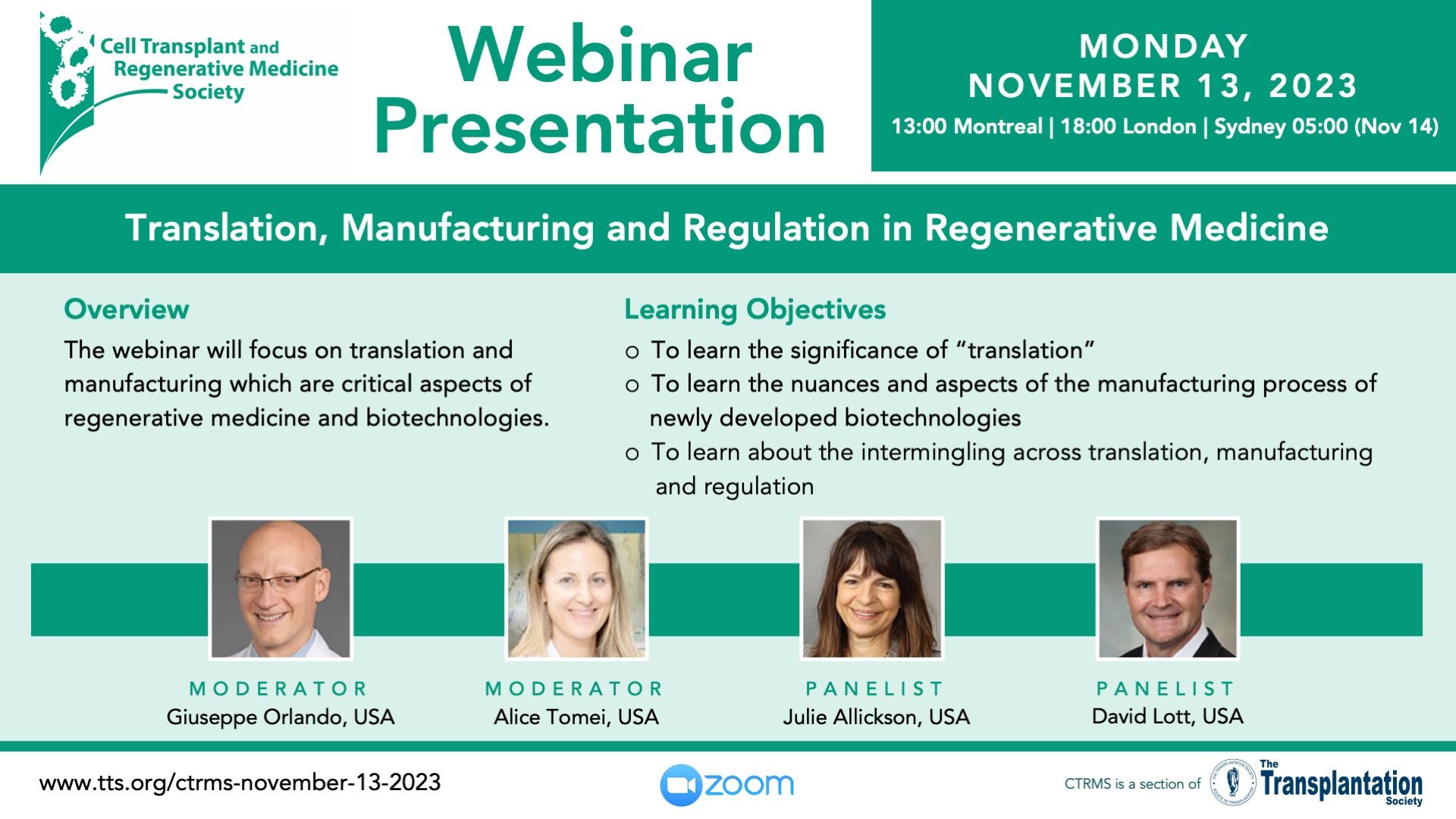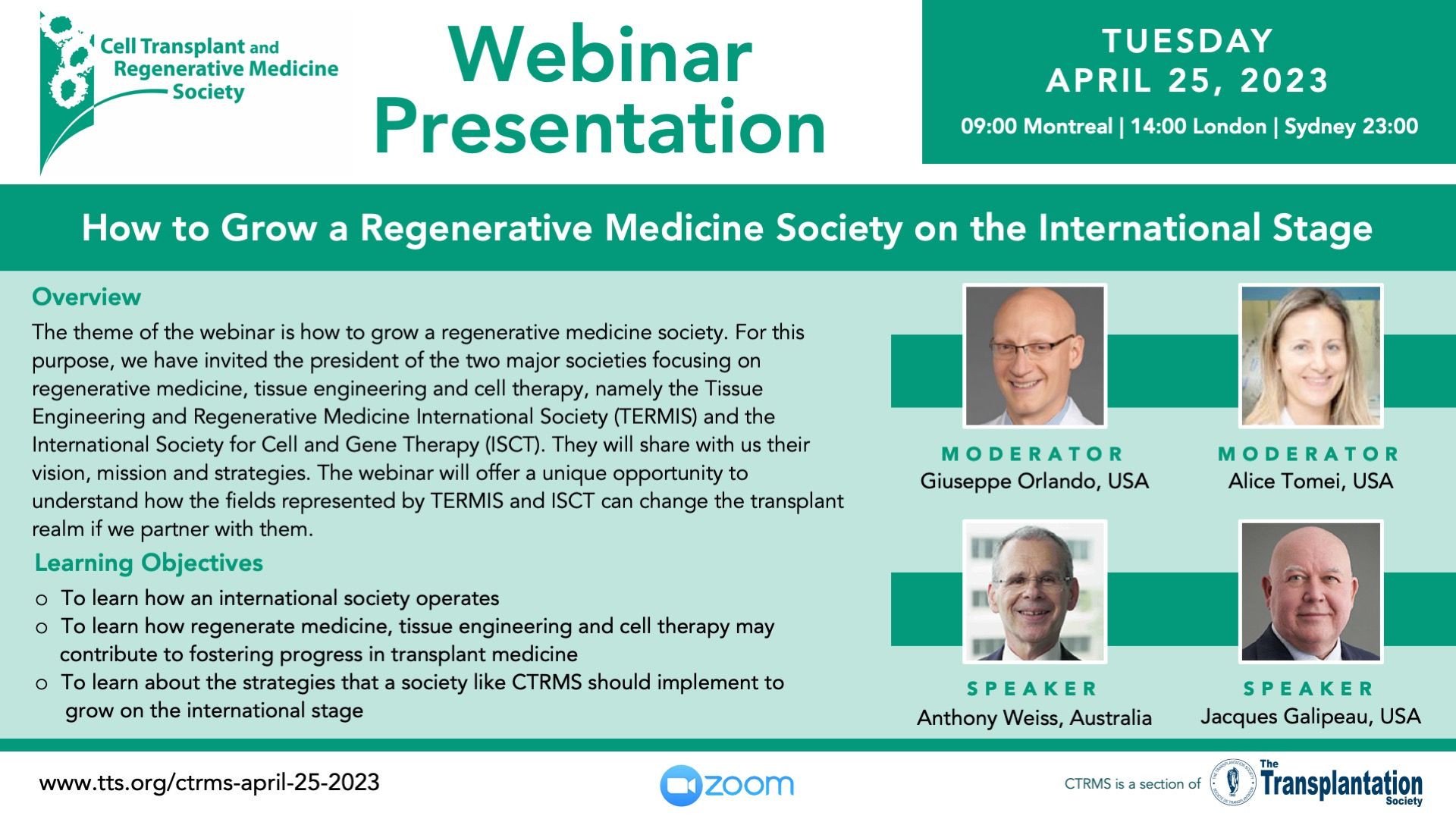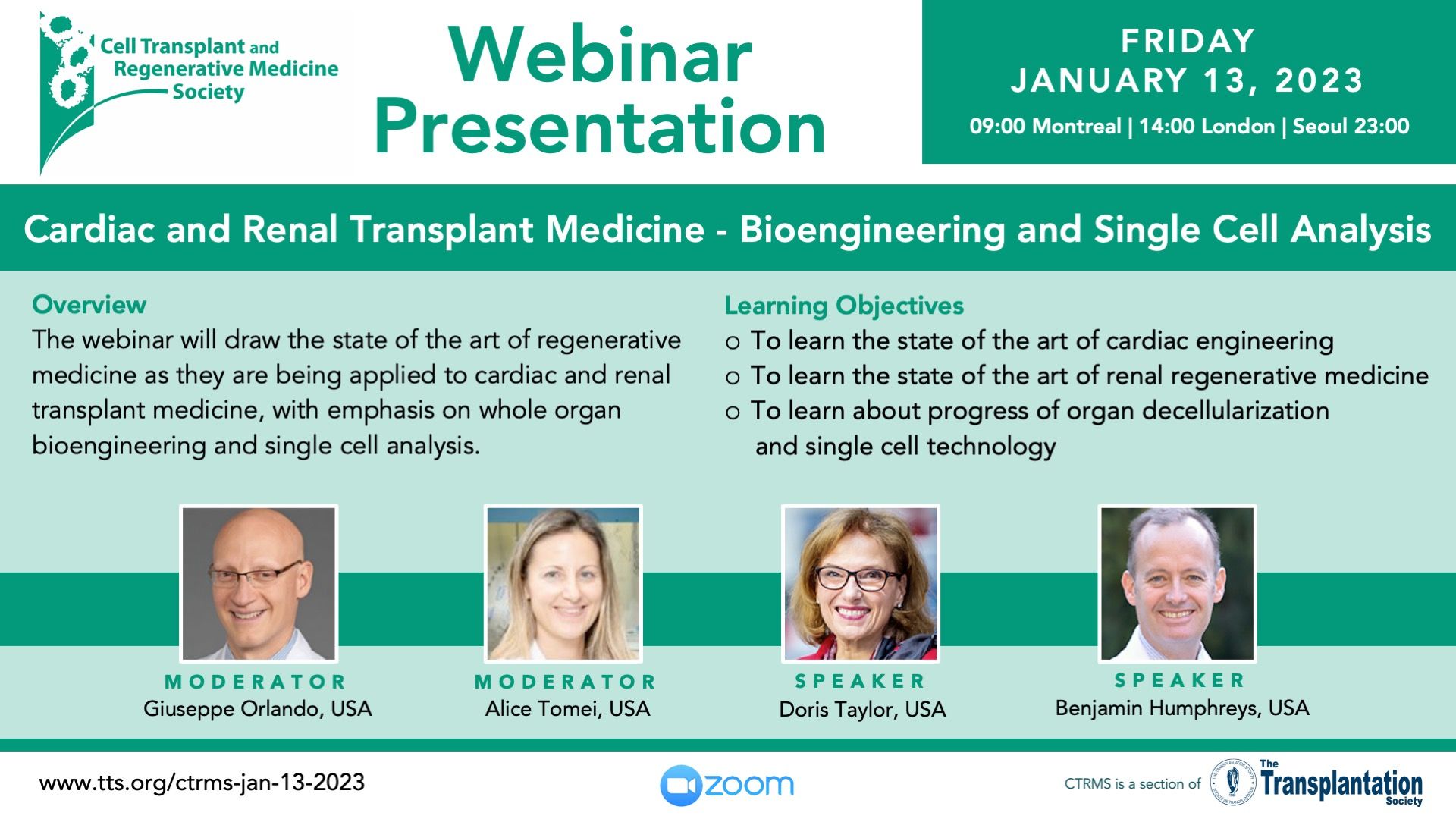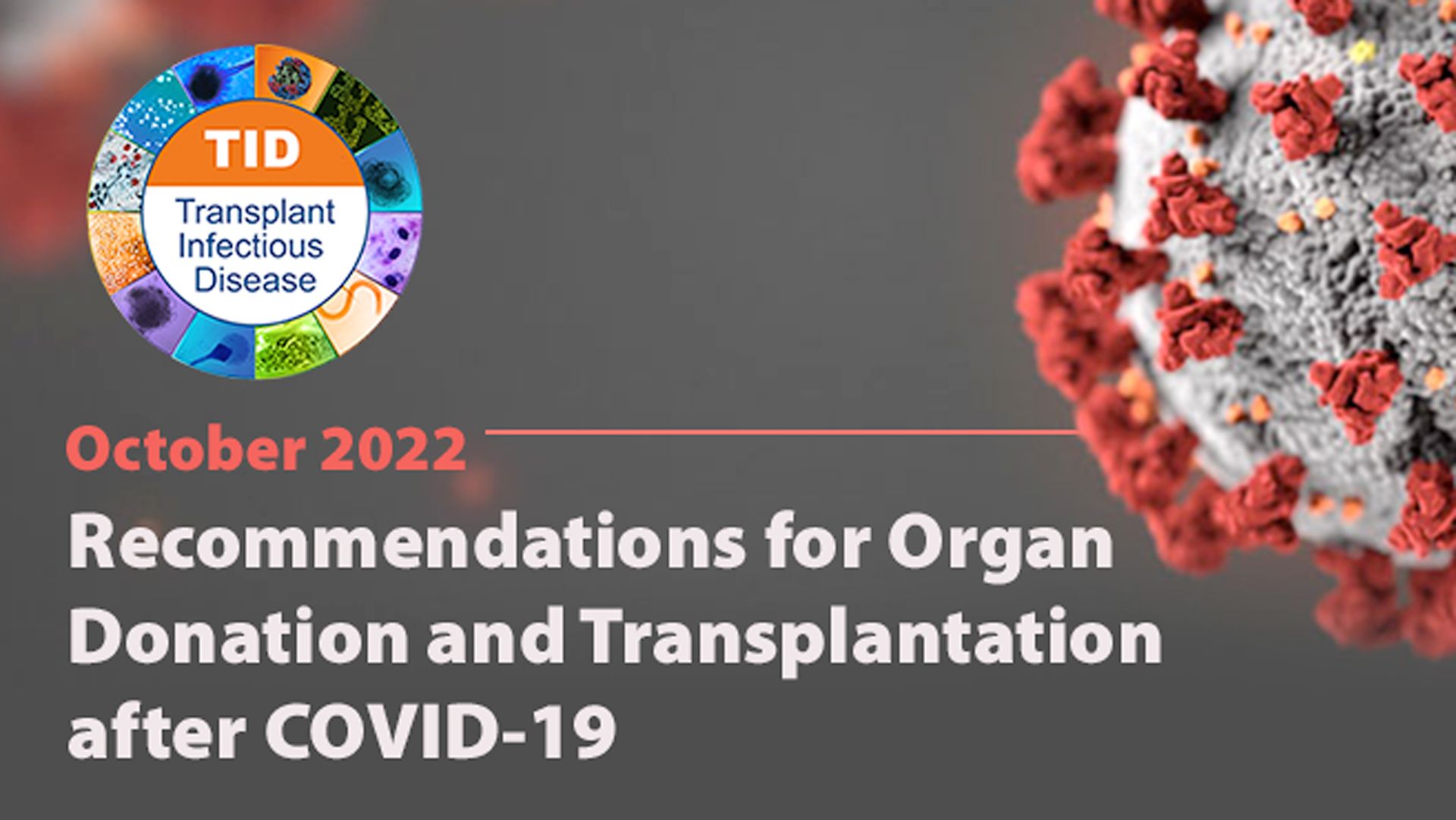Welcome to the
Cell Transplant and Regenerative Medicine Society
CTRMS 2025
Join us on our social media platforms
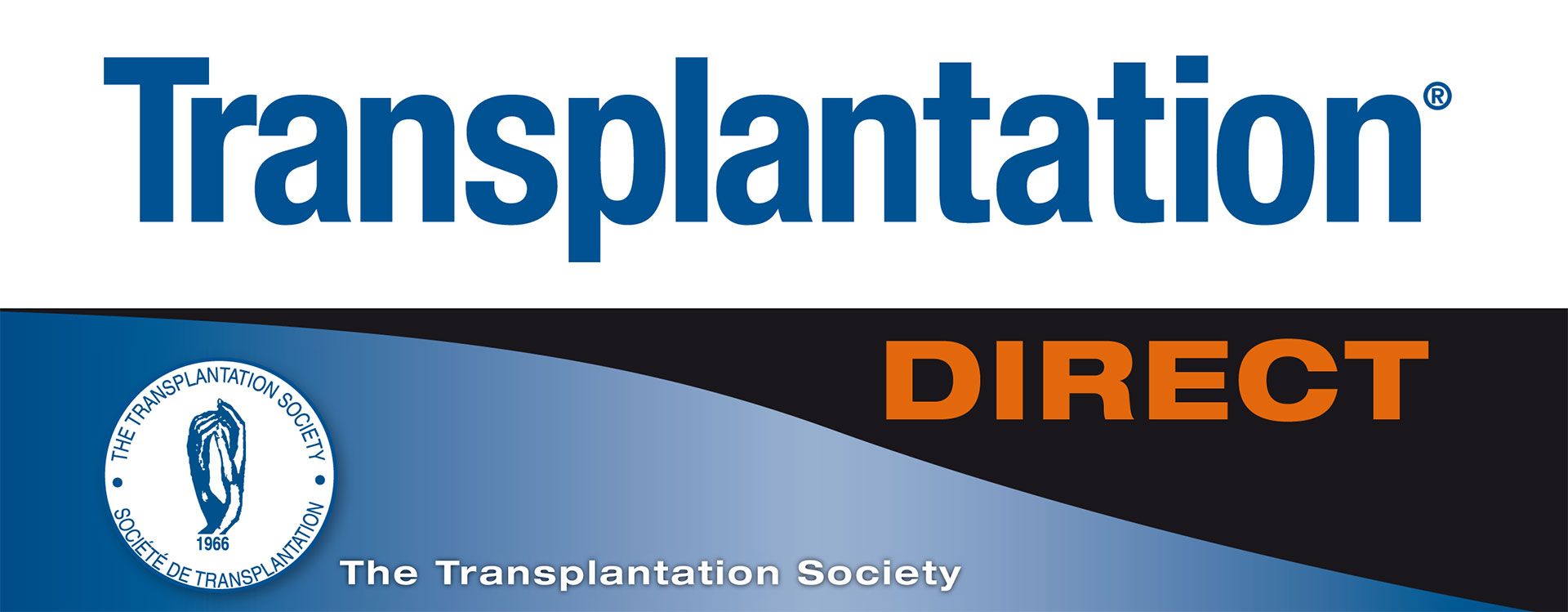
Official Journal of TTS, CTRMS, IPITA, ISODP, ISUTx and ISVCA
2025 CTRMS Call for Council Nominations
Submission Deadline: Sunday May 11, 2025 at 11:59PM ET
The Cell Transplant and Regenerative Medicine Society (CTRMS) is requesting nominations for our upcoming Council Election. Nominations are being sought for President-Elect, Secretary, Treasurer and several Councilor positions, that will commence following the 2025 CTRMS Congress, which will take place in Tokyo, Japan on October 26-25, 2025.
The Society seeks to achieve a geographically balanced representation of Council in proportion to our membership.
We seek nominations from the following Regions: North America, Europe, Asia, Middle East/Africa, Oceania and Latin America.
President-Elect: (6 year term - 2 years as President-Elect, 2 years as President and 2 years as Past President)
To be eligible for the President-Elect position you must have completed a four-year term on Council.
The President-Elect shall succeed to the office of President upon completion by the President of their term in office or upon any earlier vacancy in the office of the President. They shall attend all council meetings whenever possible and participate in advancing the objectives of CTRMS and provide mentorship to trainees in their field. In general, they shall perform any duties that from time to time may be assigned to them by Council.
Secretary (4 year term)
To be eligible for the Secretary/Treasurer position you must have completed a (4) four-year term on Council.
The Secretary shall keep the minutes of all meetings of the Council and of the membership of the Society and shall serve for 4 years; and shall see that all notices are duly given according to the provisions of these bylaws; and shall keep the membership records of the Society and be custodian of all contracts, assignments and other legal documents and records. They shall attend all council meetings whenever possible and participate in advancing the objectives of CTRMS and provide mentorship to trainees in their field. In general, they shall perform any duties that from time to time may be assigned to them by Council.
Treasurer (4 year term)
To be eligible for the Secretary/Treasurer position you must have completed a (4) four-year term on Council.
The Treasurer shall keep and maintain the financial records of the Society; the Treasurer shall serve for 4 years and have charge of and be responsible of all funds of the Society. He/she shall render to the President and to the Council, whenever requested, an account of the financial condition of the Society, and shall, in any event, report to the Council and Membership. They shall attend all council meetings whenever possible and participate in advancing the objectives of CTRMS and provide mentorship to trainees in their field. In general, they shall perform any duties that from time to time may be assigned to them by Council.
Councilor (4 year term)
A Councilor shall attend all Council meetings whenever possible, participate in advancing the objectives of CTRMS and provide mentorship to trainees in their field. In general, they shall perform any duties that from time to time may be assigned to them by Council.
To be eligible for election the candidate must be a full member in good standing of CTRMS at the time of their nomination and during their term of office. Nominations must be completed online by using your member login.
To nominate, you will need the following information:
- Name of the nominee (must be a full member in good standing)
- Names of 2 CTRMS full members to support the nomination (must be a full member in good standing)
- 200-word Bio of nominee
- Photo of nominee
Nominations must be completed by Sunday May 11, 2025, at 11:59 PM ET./
Sincerely,
Maria Koulmanda
CTRMS Secretary/Treasurer
Upcoming Webinar Presentation
CTRMS 2027 Call for Hosting

CTRMS 2025 - Call for Abstracts and Congress Scientific Awards

Submission Deadline: June 1, 2025

Application Deadline: June 30, 2025
Inaugural Edition of the Society Newsletter: CellTx NexT


Happy New Year! As we embark on this exciting journey into 2025, I am honored to greet you on behalf of the Cell Transplant and Regenerative Medicine Society (CTRMS). This year marks a fresh chapter for us as we strengthen our commitment to advancing cell transplantation and regenerative medicine through collaboration, innovation, and knowledge-sharing.
With the start of the new year, I am thrilled to introduce CellTx NexT, our quarterly newsletter dedicated to keeping you connected with the latest from CTRMS and our dynamic field. Each edition will feature updates on society initiatives, cutting-edge research highlights, details of upcoming events, and inspiring breakthroughs that shape the future of cell transplantation and regenerative medicine.
This initiative aligns seamlessly with CTRMS’s newly refined mission, goals, and vision. Our revised mission emphasizes the pursuit of transformative science and global collaboration to improve outcomes for patients worldwide. The goals of CTRMS have been sharpened to foster innovation, support education, and facilitate meaningful connections among researchers, clinicians, and industry leaders. Our vision remains steadfast: to lead the world in driving scientific advancements and creating real-world impacts for regenerative medicine.
We are also proud to share that our society has revitalized its social media presence, making it easier than ever to stay informed and engaged. I invite all members to connect with us on these channels to stay up-to-date and participate in ongoing conversations shaping our field.
As CTRMS continues to grow, your involvement is vital. Your contributions and insights shape the heart of this society, and I am confident that together, we will achieve remarkable milestones this year.
Thank you for your dedication to advancing our shared vision. I look forward to the discoveries, connections, and innovations that lie ahead.
With warm regards and best wishes for 2025,
Toshio Miki, MD, PhD
President, CTRMS
Past Webinars and Recordings
Recent Award Winners
IPITA-IXA-CTRMS 2023 Congress Recordings
Contact
Address
Cell Transplant and Regenerative Medicine Society
c/o The Transplantation Society
740 Notre-Dame Ouest
Suite 1245
Montréal, QC, H3C 3X6
Canada













